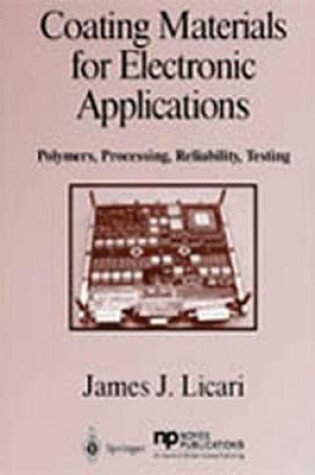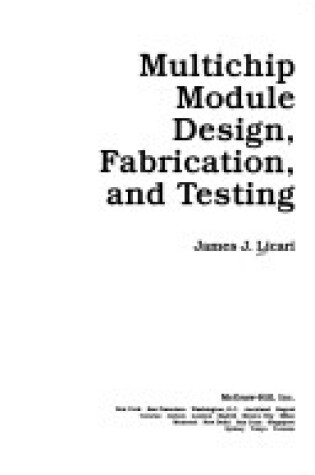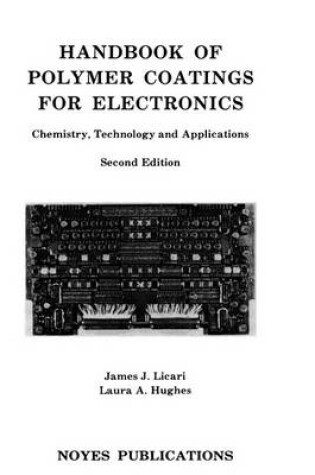has his own consulting firm, AvanTeco, specializing in materials and processes for electronics. He holds a BS in Chemistry from Fordham University and a PhD in Chemistry from Princeton University, where he was a DuPont Senior Fellow. His areas of expertise include materials and processes for electronic applications, primarily for high reliability systems, hybrid microcircuits, printed wiring circuits, and other interconnect packaging technologies. He is an expert on polymeric materials including adhesives, coatings, encapsulants, insulation, reliability based on failure modes and mechanisms. Dr. Licari has had a forty-year career dedicated to the study and advancement of microelectronic materials and processes.
Notable achievements throughout this career include conducting the first studies on the reliability and use of die-attach adhesives for microcircuits, which he did in the mid-1970s through the early 1980s, making industry and the government aware of the degrading effects of trace amounts of ionic contaminants in epoxy resins. He conducted early exploratory development on the use of non-noble metal (Cu) thick-film conductor pastes for thick-film ceramic circuits. He carried out the first studies on the use of Parylene as a dielectric and passivation coating for MOS devices and as a particle immobilizer for hybrid microcircuits. He developed the first photo-definable thick-film conductor and resistor pastes that were the forerunners of DuPont's Fodel process, for which he received a patent was granted in England. And he developed the first photocurable epoxy coating using cationic photoinitiation by employing a diazonium salt as the catalytic agent (U.S. 3205157) . The work was referenced as pioneering work in a review article by J.V. Crivello "The Discovery ad Development of Onium Salt Cationic Photoinitiators," J. Polymer Chemistry (1999)




